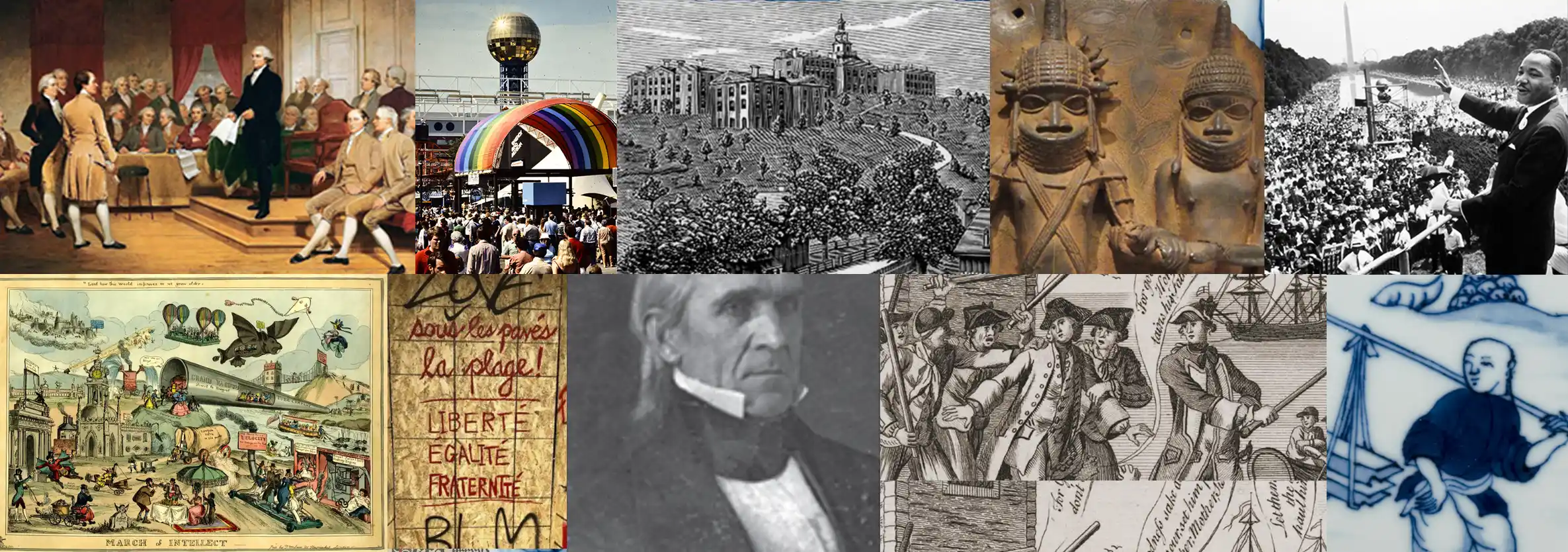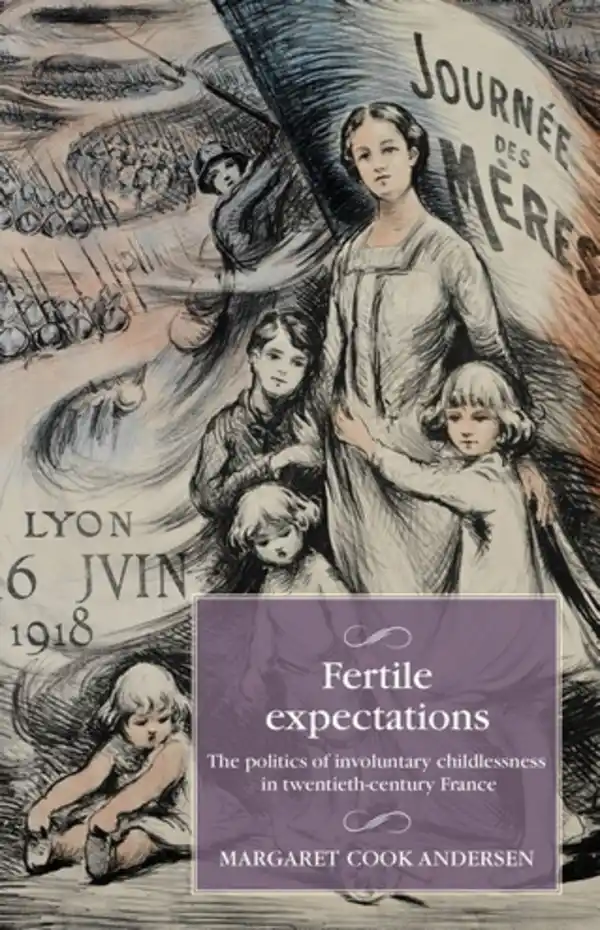
Fertile Expectations: The Politics of Childlessness in Twentieth-Century France
(Manchester University Press, 2025) | View Webpage
An engaging history of motherhood, demography, and infertility in twentieth-century France, this book explores fraught political and cultural meanings attached to the notion of an “ideal” family size. When statistics revealed a sustained drop in France’s birthrate, pronatalist activists pushed for financial benefits, propaganda, and punitive measures to counter declining fertility. Situating infertility within this history, the author details innovations in fertility medicine, cultural awareness of artificial insemination, and changing laws on child adoption. These practices offered new ways of responding to infertility and formed part of a growing expectation of being able to control one’s fertility and family size. This book presents the political and cultural context for understanding why private questions about when to start a family, how many children to have, and how to cope with involuntary childlessness, evolved and became part of state demographic policies.
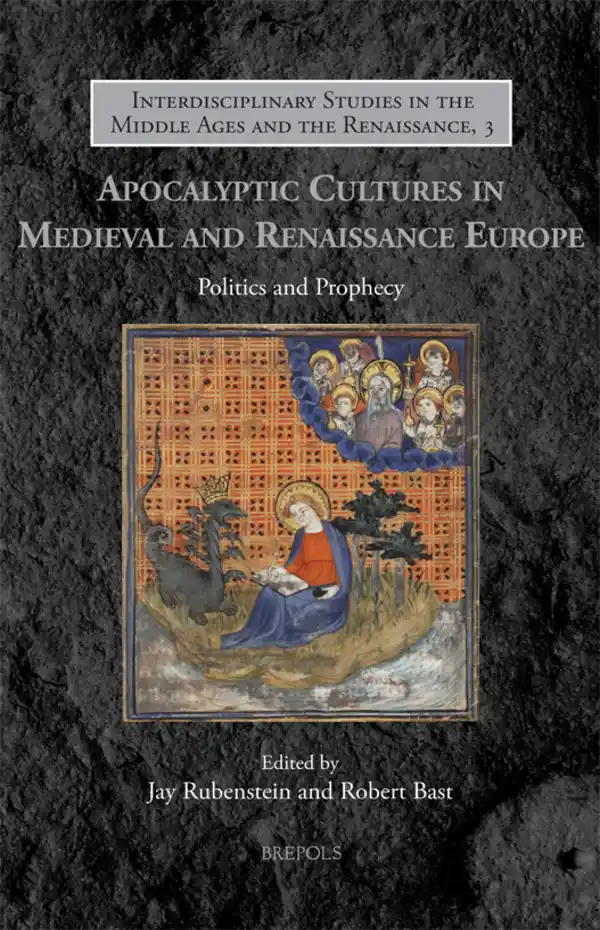
Apocalyptic Cultures in Medieval and Renaissance Europe
Brepols, 2024 | View Webpage
The essays in this collection were presented at the 2021 symposium of the Marco Institute. The authors offer new readings of Medieval and Renaissance Apocalypticism, breaking with an older model that interpreted Apocalyptic movements as marginal, paranoid and bizarre, and highlighting the expression of Apocalypticism in pragmatic concerns that informed debate and practice on matters central to Medieval and Renaissance concerns: warfare, pilgrimage, the environment, gender, genealogy, and especially the appropriation of Apocalyptic tropes in the policies and propaganda of governing rulers. The essays that open and close this collection offer meditations on the enduring legacy of Apocalypticism by focusing on the events–pandemic, political unrest, and the conspiracy theories manifest in both–that mark the historical context in which this symposium took place.

Red Dead’s History: A Video Game, An Obsession, and America’s Violent Past
Macmillan, 2024 | View Webpage
Red Dead Redemption and Red Dead Redemption II, set in 1911 and 1899, are the most-played American history video games since The Oregon Trail. Beloved by millions, they’ve been widely acclaimed for their realism and attention to detail. But how do they fare as re-creations of history? In this engaging book, award-winning American history professor Tore Olsson takes up that question and more. Weaving the games’ plots and characters into an exploration of American violence between 1870 and 1920, Olsson shows that it was more often disputes over capitalism and race, not just poker games and bank robberies, that fueled the bloodshed of these turbulent years. As such, this era has much to teach us today. From the West to the Deep South to Appalachia, Olsson reveals the gritty and brutal world that inspired the games, but sometimes lacks context and complexity on the digital screen. Colorful, fast-paced, and dramatic, Red Dead’s History sheds light on dark corners of the American past for gamers and history buffs alike.

Balkan Cyberia: Cold War Computing, Bulgarian Modernization, and the Information Age Behind the Iron Curtain
(The MIT Press, 2023) | View Webpage
Balkan Cyberia reveals the extension of economic and political networks of influence far past the reputed fall of communism, along with the pivotal role small countries played in geopolitical games at the time. Through the prism of the Bulgarian computer industry, the true nature of the socialist international economy, and indeed the links between capitalism and communism, emerge. Granted tremendous freedom by the Politburo and backed by a concerted state secret intelligence effort, a new, privileged class of technical intellectuals and managers rose to prominence in Bulgaria in the 1960s. Plugged in to transnational business and professional networks, they strove to realize the party’s radical dreams of utopian automation, and Bulgaria would come to manufacture up to half of the Eastern Bloc’s electronics. Yet, as Petrov shows, the export-oriented nature of the industry also led to the disruption of party rule. Technicians, now thinking with and through computers, began to recast the dominant intellectual discourse within a framework of reform, while technocratic managers translated their newfound political clout into economic power that served them well before and after the revolutions of 1989.
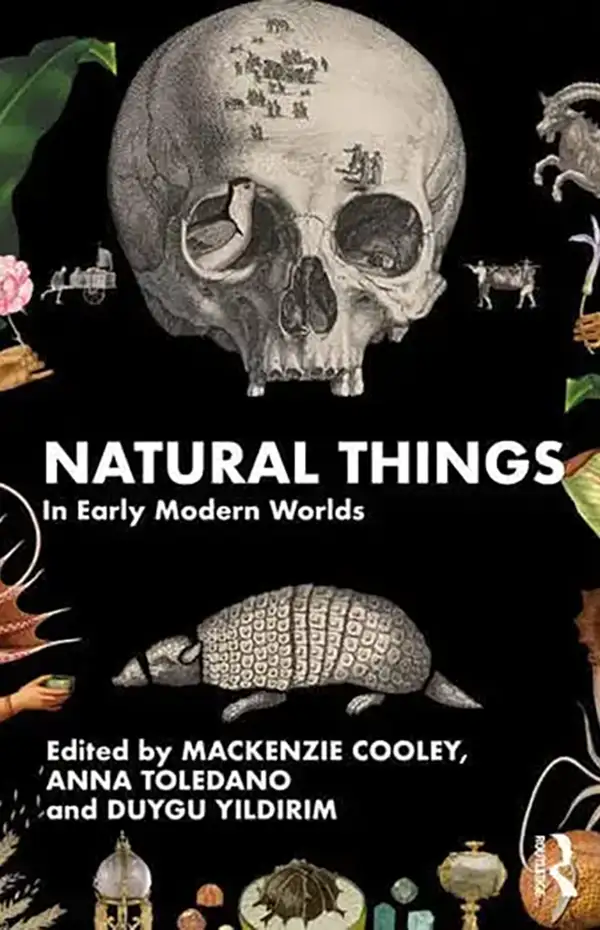
Natural Things in Early Modern Worlds
(Routledge, 2023) | View Webpage
The essays and original visualizations collected in Natural Things in Early Modern Worlds explore the relationships among natural things – ranging from pollen in a gust of wind to a carnivorous pitcher plant to a shell-like skinned armadillo – and the humans enthralled with them.
Episodes from 1500 to the early 1900s reveal connected histories across early modern worlds as natural things traveled across the Indian Ocean, the Ottoman Empire, Pacific islands, Southeast Asia, the Spanish Empire, and Western Europe. In distant worlds that were constantly changing with expanding networks of trade, colonial aspirations, and the rise of empiricism, natural things obtained new meanings and became alienated from their origins. Tracing the processes of their displacement, each chapter starts with a piece of original artwork that relies on digital collage to pull image sources out of place and to represent meanings that natural things lost and remade.
Accessible and elegant, Natural Things is the first study of its kind to combine original visualizations with the history of science. Museum-goers, scholars, scientists, and students will find new histories of nature and collecting within. Its playful visuality will capture the imagination of non-academic and academic readers alike while reminding us of the alienating capacity of the modern life sciences.
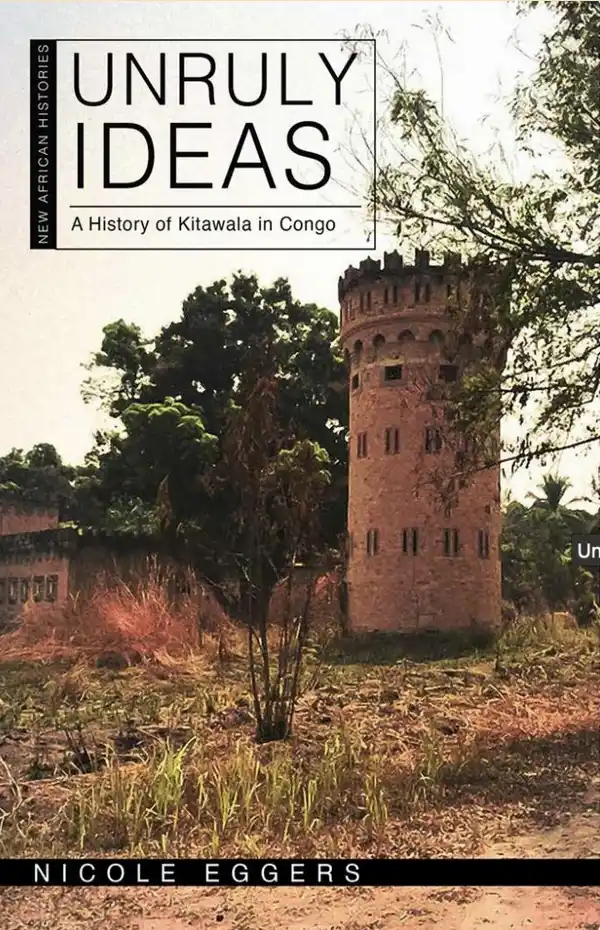
Unruly Ideas: A History of the Kitawala in Congo
(Ohio University Press, 2023) | View Webpage
Unruly Ideas: A History of Kitawala in Congo recounts the multifaceted history of the Congolese religious movement Kitawala from its colonial beginnings in the 1920s through its continued practice in some of the most conflict-riven parts of the eastern Democratic Republic of Congo today. Drawing on a rich body of original oral, ethnographic, and archival research, Nicole Eggers uses Kitawala as a lens through which to address the complex relationship between politics, religion, healing, and violence in central African history.
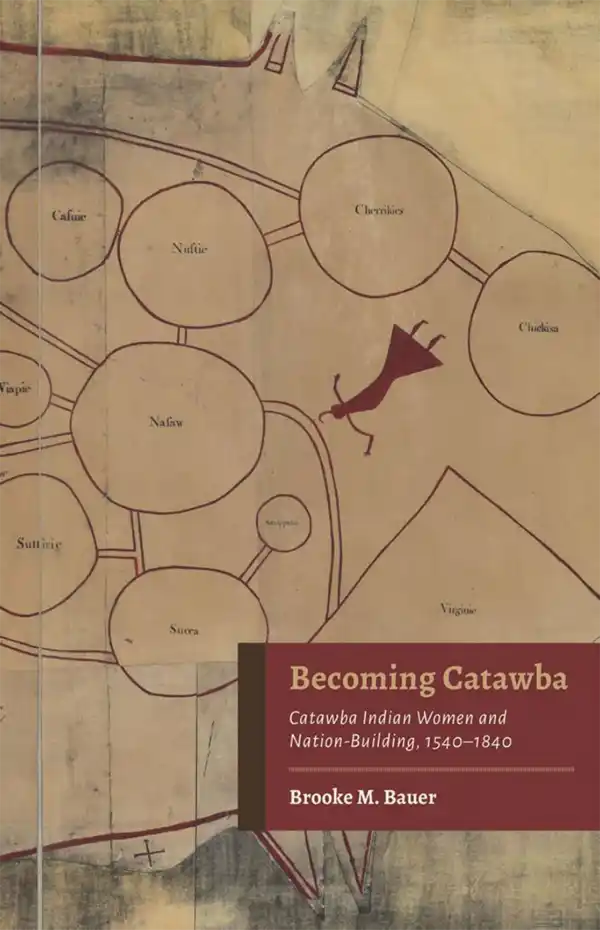
Becoming Catawba: Catawba Indian Women and Nation-Building, 1540–1840
(University of Alabama Press, 2022) | View Webpage
Becoming Catawba: Catawba Indian Women and Nation-Building, 1540–1840 is the first book-length study of the role Catawba women played in creating and preserving a cohesive tribal identity over three centuries of colonization and cultural turmoil. Bauer, a citizen of the Catawba Indian Nation of South Carolina, weaves ethnohistorical methodologies, family history, cultural context, and the Catawba language together to generate an internal perspective on the Catawbas’ history and heritage in the area now known as the Carolina Piedmont.
This unique and important study examines the lives and legacies of women who executed complex decision-making and diplomacy to navigate shifting frameworks of kinship, land ownership, and cultural production in dealings with colonial encroachments, white settlers, and Euro-American legal systems and governments from the mid-sixteenth century to the early nineteenth century. Personified in the figure of Sally New River, a Catawba cultural leader to whom 500 remaining acres of occupied tribal lands were deeded on behalf of the community in 1796 and which she managed until her death in 1821, Bauer reveals how women worked to ensure the survival of the Catawba people and their Catawba identity, an effort that resulted in a unified nation.

The Fundamental Institution: Poverty, Social Welfare, and Agriculture in American Poor Farms
(University of Illinois Press, 2022) | View Webpage
By the early 1900s, the poor farm had become a ubiquitous part of America’s social welfare system. Megan Birk’s history of this foundational but forgotten institution focuses on the connection between agriculture, provisions for the disadvantaged, and the daily realities of life at poor farms. Conceived as an inexpensive way to provide care for the indigent, poor farms in fact attracted wards that ranged from abused wives and the elderly to orphans, the disabled, and disaster victims. Most people arrived unable rather than unwilling to work, some because of physical problems, others due to a lack of skills or because a changing labor market had left them behind. Birk blends the personal stories of participants with institutional histories to reveal a loose-knit system that provided a measure of care to everyone without an overarching philosophy of reform or rehabilitation.
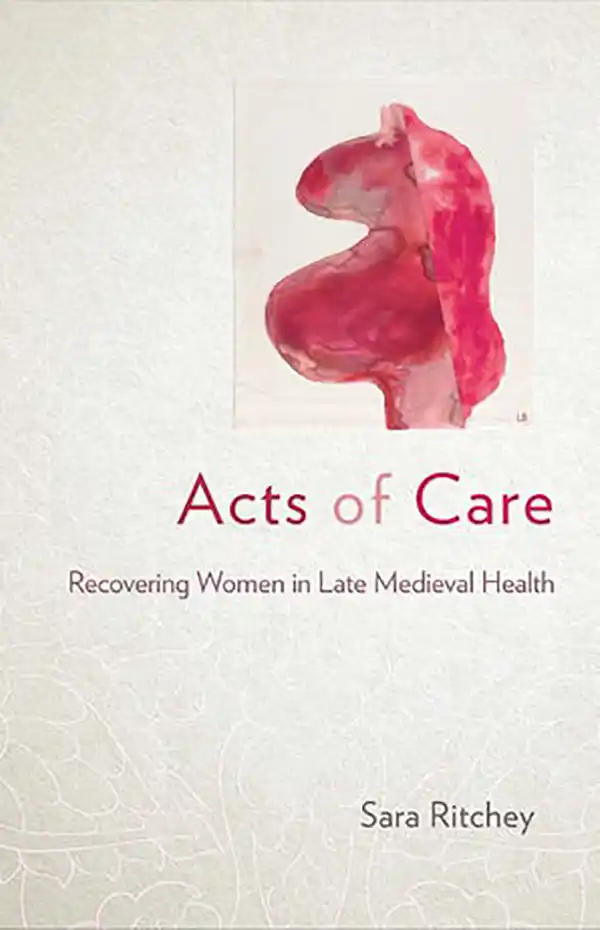
Acts of Care
(Cornell University Press, 2021) | View Webpage
Acts of Care demonstrates that women in premodern Europe were both deeply engaged with and highly knowledgeable about health, the body, and therapeutic practices, but their critical role in medieval healthcare has been obscured because scholars have erroneously regarded the evidence of their activities as religious rather than medical. The sources for identifying the scope of medieval women’s health knowledge and healthcare practice, Ritchey argues, are not found in academic medical treatises. Rather, she follows fragile traces detectable in liturgy, miracles, poetry, hagiographic narratives, meditations, sacred objects, and the daily behaviors that constituted the world, as well as in testaments and land transactions from hospitals and leprosaria established and staffed by beguines and Cistercian nuns. Through its surprising use of alternate sources, Acts of Care reconstructs the vital caregiving practices of religious women in the southern Low Countries, reconnecting women’s therapeutic authority into the everyday world of late medieval healthcare.
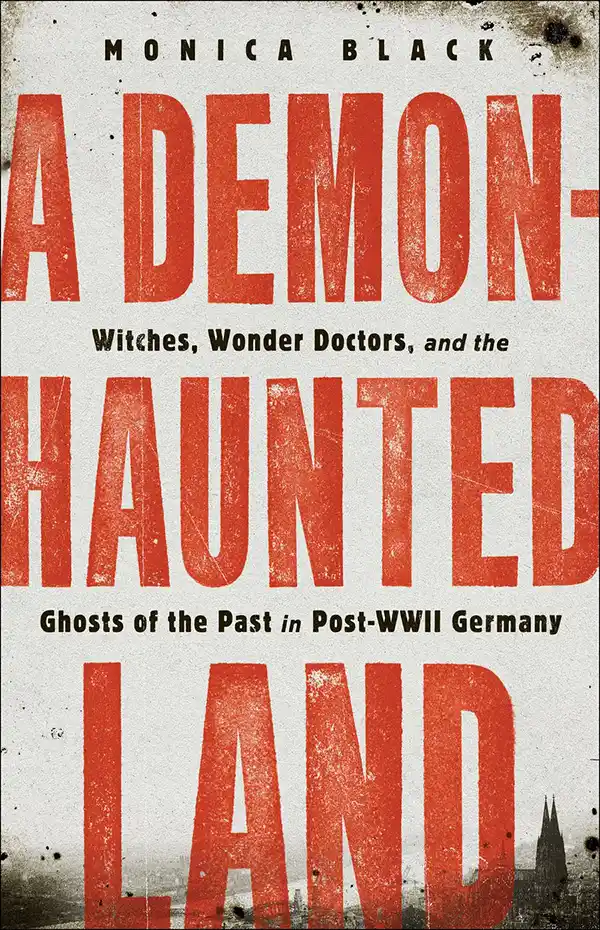
A Demon-Haunted Land
(Metropolitan Books, 2020) | View Webpage
A revelatory counterhistory of postwar Germany, not as a reborn democracy but as a nation convulsed by apocalyptic visions, witchcraft trials, and supernatural obsessions.In the aftermath of World War II, a succession of mass supernatural events swept through war-torn Germany. A messianic faith healer rose to extraordinary fame, prayer groups performed exorcisms, and enormous crowds traveled to witness apparitions of the Virgin Mary. Most strikingly, scores of people accused their neighbors of witchcraft, and found themselves in turn hauled into court on charges of defamation, assault, and even murder. What linked these events, in the wake of an annihilationist war and the Holocaust, was a widespread preoccupation with evil.While many histories emphasize Germany’s rapid transition from genocidal dictatorship to liberal democracy, A Demon-Haunted Land places in full view the toxic mistrust, profound bitterness, and spiritual malaise that unfolded alongside the economic miracle. Drawing on previously unpublished archival materials, acclaimed historian Monica Black argues that the surge of supernatural obsessions stemmed from the unspoken guilt and shame of a nation remarkably silent about what was euphemistically called “the most recent past.” This shadow history irrevocably changes our view of postwar Germany, revealing the country’s fraught emotional life, deep moral disquiet, and the cost of trying to bury a horrific legacy.
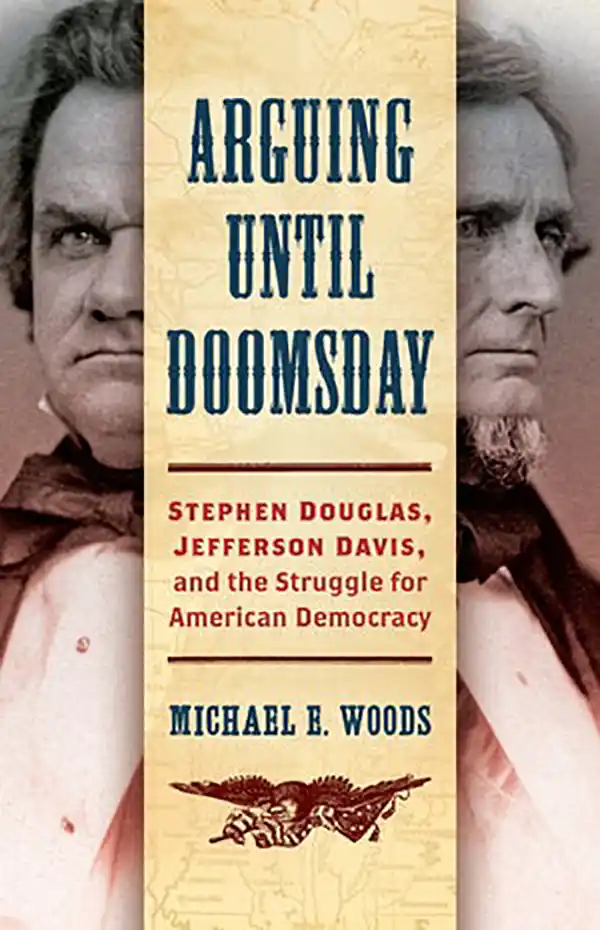
Arguing until Doomsday
(University of North Carolina Press, 2020) | View Webpage
As the sectional crisis gripped the United States, the rancor increasingly spread to the halls of Congress. Preston Brooks’s frenzied assault on Charles Sumner was perhaps the most notorious evidence of the dangerous divide between proslavery Democrats and the new antislavery Republican Party. But as disunion loomed, rifts within the majority Democratic Party were every bit as consequential. And nowhere was the fracture more apparent than in the raging debates between Illinois’s Stephen Douglas and Mississippi’s Jefferson Davis. As leaders of the Democrats’ northern and southern factions before the Civil War, their passionate conflict of words and ideas has been overshadowed by their opposition to Abraham Lincoln.
But here, weaving together biography and political history, Michael E. Woods restores Davis and Douglas’s fatefully entwined lives and careers to the center of the Civil War era. Operating on personal, partisan, and national levels, Woods traces the deep roots of Democrats’ internal strife, with fault lines drawn around fundamental questions of property rights and majority rule. Neither belief in white supremacy nor expansionist zeal could reconcile Douglas and Davis’s factions as their constituents formed their own lines in the proverbial soil of westward expansion. The first major reinterpretation of the Democratic Party’s internal schism in more than a generation, Arguing until Doomsday shows how two leading antebellum politicians ultimately shattered their party and hastened the coming of the Civil War.

John Hervey Wheeler, Black Banking, and the Economic Struggle for Civil Rights
(University of Kentucky Press, 2020) | View Webpage
John Hervey Wheeler (1908–1978) was one of the civil rights movement’s most influential leaders. In articulating a bold vision of regional prosperity grounded in full citizenship and economic power for African Americans, this banker, lawyer, and visionary would play a key role in the fight for racial and economic equality throughout North Carolina. Utilizing previously unexamined sources from the John Hervey Wheeler Collection at the Atlanta University Center Robert W. Woodruff Library, this biography explores the black freedom struggle through the life of North Carolina’s most influential black power broker.
After graduating from Morehouse College, Wheeler returned to Durham and began a decades-long career at Mechanics and Farmers (M&F) Bank. He started as a teller and rose to become bank president in 1952. In 1961, President Kennedy appointed Wheeler to the President’s Committee on Equal Employment Opportunity, a position in which he championed equal rights for African Americans and worked with Vice President Johnson to draft civil rights legislation. One of the first blacks to attain a high position in the state’s Democratic Party, Wheeler became the state party’s treasurer in 1968, and then its financial director. Wheeler urged North Carolina’s white financial advisors to steer the region toward the end of Jim Crow segregation for economic reasons. Straddling the line between confrontation and negotiation, Wheeler pushed for increased economic opportunity for African Americans while reminding the white South that its future was linked to the plight of black southerners.
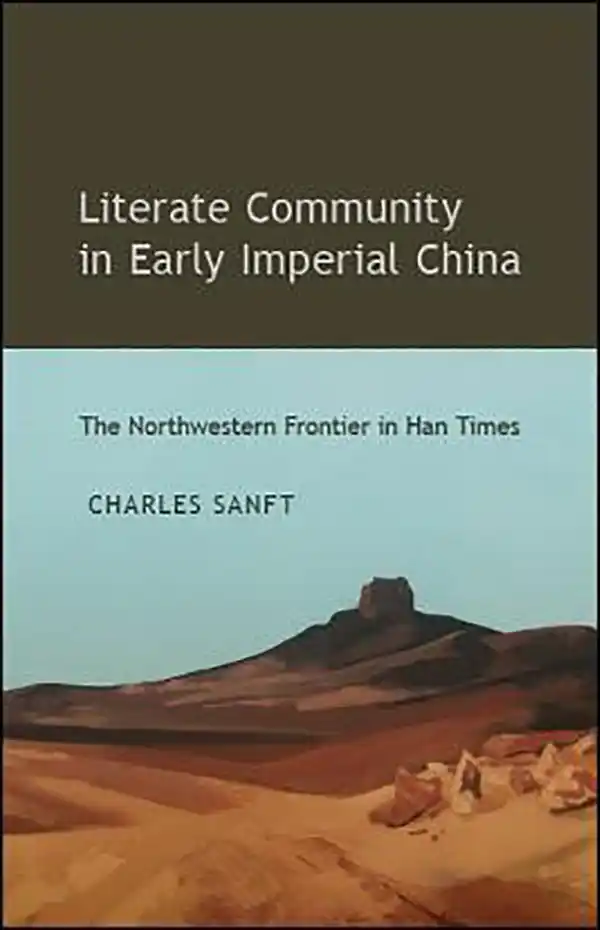
Literate Community in Early Imperial China The Northwestern Frontier in Han Times
(SUNY Press, 2019) | View Webpage
This book examines ancient written materials from China’s northwestern border regions to offer fresh insights into the role of text in shaping society and culture during the Han period (206/2 BCE–220 CE). Left behind by military installations, these documents—wooden strips and other nontraditional textual materials such as silk—recorded the lives and activities of military personnel and the people around them. Charles Sanft explores their functions and uses by looking at a fascinating array of material, including posted texts on signaling across distances, practical texts on brewing beer and evaluating swords, and letters exchanged by officials working in low rungs of the bureaucracy. By focusing on all members of the community, he argues that a much broader section of early society had meaningful interactions with text than previously believed. This major shift in interpretation challenges long-standing assumptions about the limited range of influence that text and literacy had on culture and society and makes important contributions to early China studies, the study of literacy, and to the global history of non-elites.

To Live Here, You Have to Fight: How Women Led Appalachian Movements for Social Justice
(University of Illinois Press, 2019) | View Webpage
Launched in 1964, the War on Poverty quickly took aim at the coalfields of southern Appalachia. There, the federal government found unexpected allies among working-class white women devoted to a local tradition of citizen caregiving and seasoned by decades of activism and community service.
Jessica Wilkerson tells their stories within the larger drama of efforts to enact change in the 1960s and 1970s. She shows white Appalachian women acting as leaders and soldiers in a grassroots war on poverty–shaping and sustaining programs, engaging in ideological debates, offering fresh visions of democratic participation, and facing personal political struggles. Their insistence that caregiving was valuable labor clashed with entrenched attitudes and rising criticisms of welfare. Their persistence, meanwhile, brought them into unlikely coalitions with black women, disabled miners, and others to fight for causes that ranged from poor people’s rights to community health to unionization.
Inspiring yet sobering, To Live Here, You Have to Fight reveals Appalachian women as the indomitable caregivers of a region–and overlooked actors in the movements that defined their time.
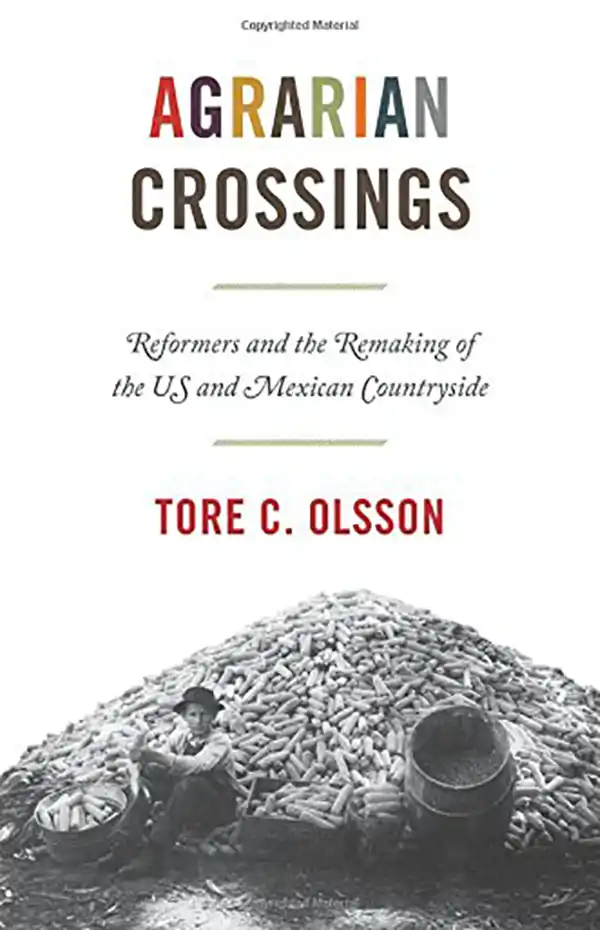
Agrarian Crossings: Reformers and the Remaking of the US and Mexican Countryside
(Princeton University Press, 2017) | View Webpage
In the 1930s and 1940s, rural reformers in the United States and Mexico waged unprecedented campaigns to remake their countrysides in the name of agrarian justice and agricultural productivity. Agrarian Crossings tells the story of how these campaigns were conducted in dialogue with one another as reformers in each nation came to exchange models, plans, and strategies with their equivalents across the border. Dismantling the artificial boundaries that can divide American and Latin American history, the book shows how the agrarian histories of both regions share far more than we realize.
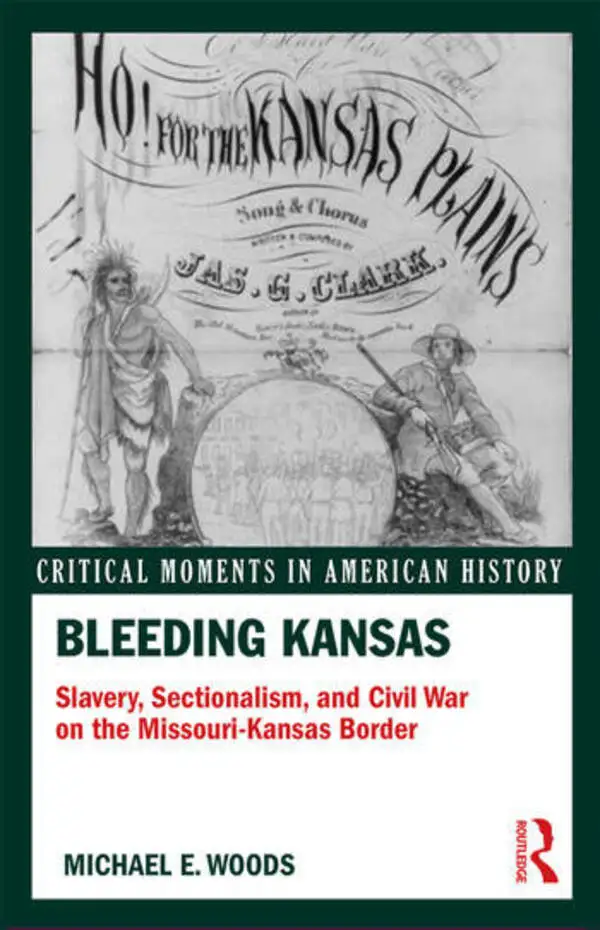
Bleeding Kansas: Slavery, Sectionalism, and Civil War on the Missouri-Kansas Border
(Routledge, 2017) | View Webpage
Between 1854 and 1861, the struggle between pro-and anti-slavery factions over Kansas Territory captivated Americans nationwide and contributed directly to the Civil War. Combining political, social, and military history, Bleeding Kansas contextualizes and analyzes prewar and wartime clashes in Kansas and Missouri and traces how these conflicts have been remembered ever since. Michael E. Woods’s compelling narrative of the Kansas-Missouri border struggle embraces the diverse perspectives of white northerners and southerners, women, Native Americans, and African Americans. This wide-ranging and engaging text is ideal for undergraduate courses on the Civil War era, westward expansion, Kansas and/or Missouri history, nineteenth-century US history, and other related subjects. Supported by primary source documents and a robust companion website, this text allows readers to engage with and draw their own conclusions about this contentious era in American History.
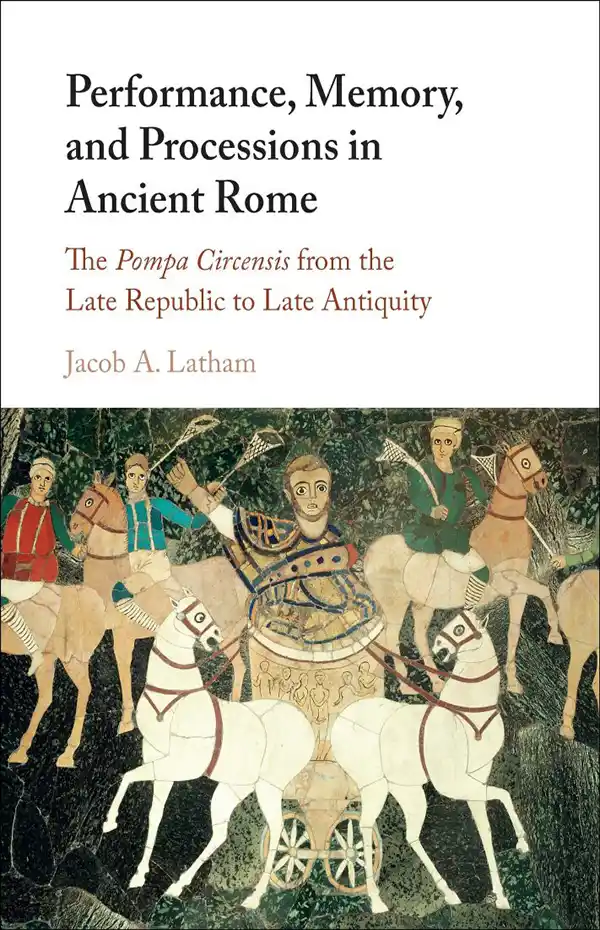
Performance, Memory, and Processions in Ancient Rome: The Pompa Circensis from the Late Republic to Late Antiquity
(Cambridge University Press, 2016) | View Webpage
The pompa circensis, the procession which preceded the chariot races in the arena, was both a prominent political pageant and a hallowed religious ritual. Traversing a landscape of memory, the procession wove together spaces and institutions, monuments and performers, gods and humans into an image of the city, whose contours shifted as Rome changed. In the late Republic, the parade produced an image of Rome as the senate and the people with their gods – a deeply traditional symbol of the city which was transformed during the empire when an imperial image was built on top of the republican one. In late antiquity, the procession fashioned a multiplicity of Romes: imperial, traditional, and Christian. In this book, Jacob A. Latham explores the webs of symbolic meanings in the play between performance and itinerary, tracing the transformations of the circus procession from the late Republic to late antiquity.
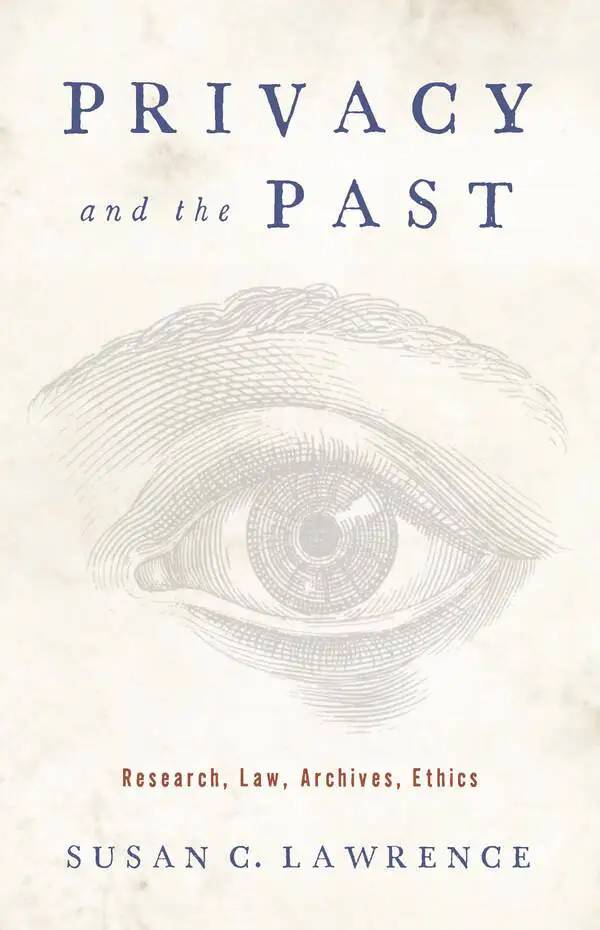
Privacy and the Past: Research, Law, Archives, Ethics
(Rutgers, 2016) | View Webpage
When the new HIPAA privacy rules regarding the release of health information took effect, medical historians suddenly faced a raft of new ethical and legal challenges—even in cases where their subjects had died years, or even a century, earlier. In Privacy and the Past, medical historian Susan C. Lawrence explores the impact of these new privacy rules, offering insight into what historians should do when they research, write about, and name real people in their work.
Lawrence offers a wide-ranging and informative discussion of the many issues involved. She highlights the key points in research ethics that can affect historians, including their ethical obligations to their research subjects, both living and dead, and she reviews the range of federal laws that protect various kinds of information. The book discusses how the courts have dealt with privacy in contexts relevant to historians, including a case in which a historian was actually sued for a privacy violation. Lawrence also questions who gets to decide what is revealed and what is kept hidden in decades-old records, and she examines the privacy issues that archivists consider when acquiring records and allowing researchers to use them. She looks at how demands to maintain individual privacy both protect and erase the identities of people whose stories make up the historical record, discussing decisions that historians have made to conceal identities that they believed needed to be protected. Finally, she encourages historians to vigorously resist any expansion of regulatory language that extends privacy protections to the dead.
Engagingly written and powerfully argued, Privacy and the Past is an important first step in preventing privacy regulations from affecting the historical record and the ways that historians write history.

Fostering on the Farm: Child Placement in the Rural Midwest
(University of Illinois Press, 2015) | View Webpage
From 1870 until after World War I, reformers led an effort to place children from orphanages, asylums, and children’s homes with farming families. The farmers received free labor in return for providing room and board. Reformers, meanwhile, believed children learned lessons in family life, citizenry, and work habits that institutions simply could not provide.
Drawing on institution records, correspondence from children and placement families, and state reports, Megan Birk scrutinizes how the farm system developed–and how the children involved may have become some of America’s last indentured laborers. Between 1850 and 1900, up to one-third of farm homes contained children from outside the family. Birk reveals how the nostalgia attached to misplaced perceptions about healthy, family-based labor masked the realities of abuse, overwork, and loveless upbringings endemic in the system. She also considers how rural people cared for their own children while being bombarded with dependents from elsewhere. Finally, Birk traces how the ills associated with rural placement eventually forced reformers to transition to a system of paid foster care, adoptions, and family preservation.
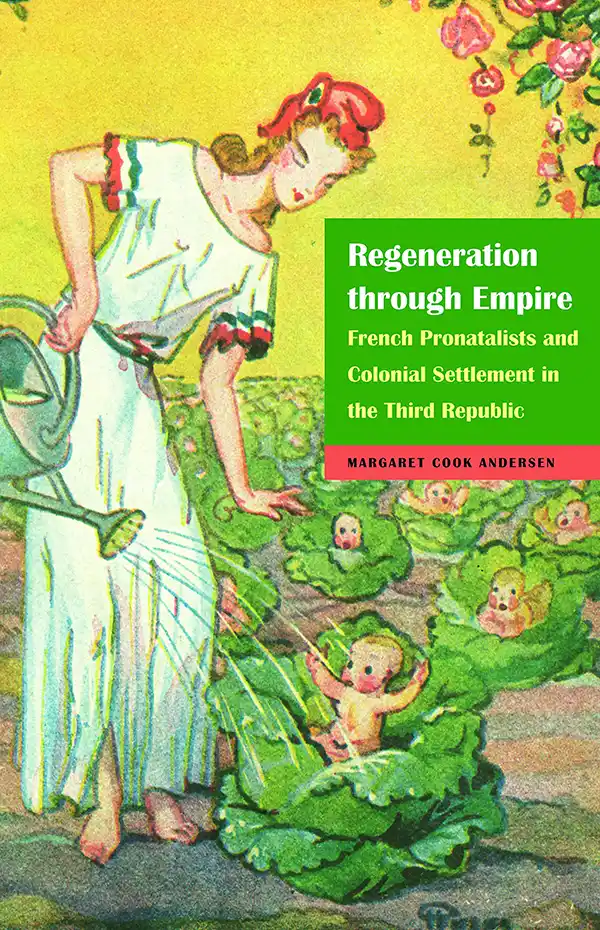
Regeneration through Empire: French Protonatalists and Colonial Settlement in the Third Republic
(University of Nebraska Press, 2015) | View Webpage
Following France’s defeat in the Franco-Prussian War in 1870–71, French patriots feared that their country was in danger of becoming a second-rate power in Europe. Decreasing birth rates had largely slowed French population growth, and the country’s population was not keeping pace with that of its European neighbors. To regain its standing in the European world, France set its sights on building a vast colonial empire while simultaneously developing a policy of pronatalism to reverse these demographic trends. Though representing distinct political movements, colonial supporters and pronatalist organizations were born of the same crisis and reflected similar anxieties concerning France’s trajectory and position in the world.
Regeneration through Empire explores the intersection between colonial lobbyists and pronatalists in France’s Third Republic. Margaret Cook Andersen argues that as the pronatalist movement became more organized at the end of the nineteenth century, pronatalists increasingly understood their demographic crisis in terms that transcended the boundaries of the metropole and began to position the French empire, specifically its colonial holdings in North Africa and Madagascar, as a key component in the nation’s regeneration. Drawing on an array of primary sources from French archives, Regeneration through Empire is the first book to analyze the relationship between depopulation and imperialism.
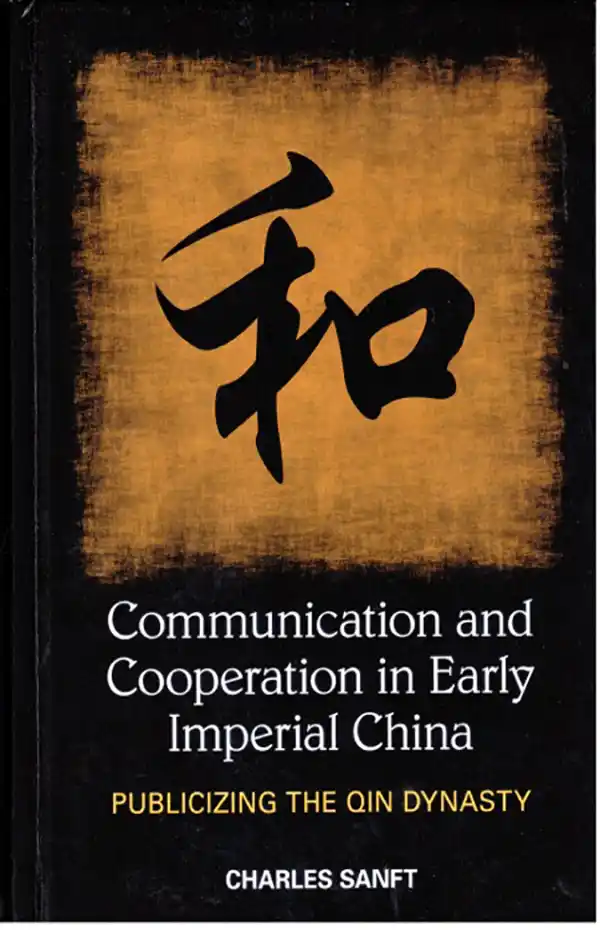
Communication and Cooperation in Early Imperial China: Publicizing the Qin Dynasty
(State University of New York Press, 2014) | View Webpage
Charles Sanft’s book Communication and Cooperation in Early Imperial China: Publicizing the Qin Dynasty (2014) challenges longstanding notions of the Qin dynasty, China’s first imperial rulers. Historians have long portrayed the Qin as epitomizing totalitarian government. Communication and Cooperation synthesizes received accounts and new information from archaeology in China with interdisciplinary theory to provide a reconsideration of this key period in China’s history. It shows that rather than ruling solely or even primarily through oppression, the Qin had a sophisticated approach to rule that incorporated significant non-coercive tactics that relied on media to encourage cooperation between the public and the emperor.

Death in Berlin: From Weimar to Divided Germany
(Cambridge University Press, 2013) | View Webpage
We tend to think of death as a basic and immutable fact of life. Yet death, too, has a history. Death in Berlin is the first study to trace the rituals, practices, perceptions, and sensibilities surrounding death in the context of Berlin’s multiple transformations over the decades between Germany’s defeat in World War I and the construction of the Berlin Wall. Evocatively illustrated and drawing on a rich collection of sources, Monica Black reveals the centrality of death to the evolving moral and social life of one metropolitan community. In doing so, she connects the intimacies of everyday life and death to events on the grand historical stage that changed the lives of millions – all in a city that stood at the center of some of the twentieth century’s most transformative events.

Acolytes of Nature: Defining Natural Science in Germany, 1770-1850
(University of Chicago Press, 2012) | View Webpage
Although many of the practical and intellectual traditions that make up modern science date back centuries, the category of “science” itself is a relative novelty. In the early eighteenth century, the modern German word that would later mean “science,” naturwissenschaft, was not even included in dictionaries. By 1850, however, the term was in use everywhere. Acolytes of Nature follows the emergence of this important new category within German-speaking Europe, tracing its rise from an insignificant eighteenth-century neologism to a defining rallying cry of modern German culture.
Today’s notion of a unified natural science has been deemed an invention of the mid-nineteenth century. Yet what Denise Phillips reveals here is that the idea of naturwissenschaft acquired a prominent place in German public life several decades earlier. Phillips uncovers the evolving outlines of the category of natural science and examines why Germans of varied social station and intellectual commitments came to find this label useful. An expanding education system, an increasingly vibrant consumer culture and urban social life, the early stages of industrialization, and the emergence of a liberal political movement all fundamentally altered the world in which educated Germans lived, and also reshaped the way they classified knowledge.
“Most of us spend too much time on the last twenty-four hours and too little on the last six thousand years.”
—Will Durant
